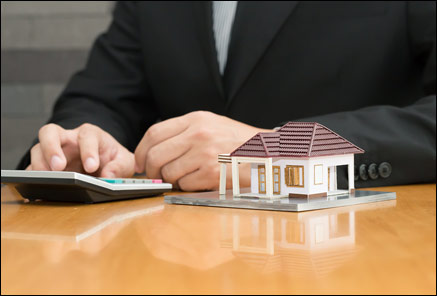
Occasionally, during a Chapter 13 bankruptcy, one may find that they have a significant life change that causes them to need a modification to their monthly plan payments. While it is possible to alter the plan and keep you in the Chapter 13 bankruptcy, there are times where a Chapter 13 will no longer work and you must convert to a Chapter 7. One of the most important questions that will run through a debtor’s mind is, “will I lose my house in the Chapter 7”?
To answer this question, I highly recommend you first read our blog, “Can I Keep my House in Bankruptcy,” before you read this current one. The link is as follows:
https://hamptonroadslawfirm.com/yorktown-va-bankruptcy-attorneys-keeping-a-house-in-bankruptcy/
In summary: if there is equity in real property, including a primary residence, the trustee may sell the property for the benefit of the unsecured creditors. That said, you may find yourself in a situation where the equity in your house increased between when you first filed the Chapter 13 and the day you convert your case to a Chapter 7 bankruptcy.
Consider the scenario where you enter a Chapter 13 bankruptcy since you earn above the state median income; but your house is only worth $100,000.00 and you owe $103,000.00 to the Lender. Here, you have no equity and your house would have been safe in a Chapter 7 bankruptcy. Now, imagine that three years into your Chapter 13 bankruptcy, as a result of a job loss, you now make less than the median income and qualify to convert your case to a Chapter 7. Is your house safe? Or, do you have too much equity? During the three-year period you have been making all your mortgage payments and the balance you owe the Lender has dropped by $6,000.00, reducing your mortgage balance to $97,000.00. That alone would likely not produce enough equity to be problematic in a Chapter 7 liquidation.
However, let’s say that your community has experienced real estate values rising and your home has increased in value by $12,000.00 over the last three years. Now, your house is worth $112,000.00 and you only owe $97,000.00; or, you have about $15,000.00 in equity. In this scenario, your attorney must determine if you have too much unprotected equity to convert to a Chapter 7 bankruptcy.
If there was Equity in the House Before you filed Chapter 13
Individuals often enter into a Chapter 13 bankruptcy, rather than a Chapter 7, purely because they have too much equity in the house and know trustee could force the house to be sold. If you convert to a Chapter 7, in this situation, you will lose the house. Furthermore, the money from the sale of the house will go to your mortgage company, then to your unsecured creditors. Short of any exemptions you may have (like a Homestead Deed), only after those creditors are paid off will you possibly see any money from the equity in your home.
Another scenario includes the possible that the equity may no longer exist. If, by no fault of your own, the property value of the house has fallen below the amount you owe on the mortgage, then you may find yourself in a situation where there is no equity, and your house will be safe from liquidation in the Chapter 7 bankruptcy.
There Was No Equity When Chapter 13 Filed… Now There Is
The bankruptcy code states that “property of the estate in the converted case shall consist of property of the estate, as of the date of filing petition”. 11 U.S.C. § 348(f)(1)(A). Simply put, the chapter 7 trustee only has access to the property that existed as of the date that you filed the chapter 13 bankruptcy. Thus, if you acquired new assets during the chapter 13, the chapter 7 trustee may not liquidate them. However, courts throughout the United States are split as to what date the court should use to determine the value of your property. The date you valuate the property greatly impacts whether your house is at risk. Regrettably, the bankruptcy courts in Virginia have interpreted the most recent laws to benefit the creditors, rather than the debtors on this issue.
In Virginia, the milestone case is in re: Goins. 539 B.R. 510 (ED VA 2015.) In the Goins opinion, the court stated that “the post-petition appreciation in the property… is always property of the …[bankruptcy] estate”. (539 B.R. 510, 515) (Emphasis added). Essentially, in Virginia, the Bankruptcy Courts have concluded that once a house is part of the bankruptcy estate, the trustee has an ongoing power to determine the valuation of the property. Thus, if you have paid your mortgage payments each month, and your house is sold, the equity that you created through the duration of your chapter 13 bankruptcy, will be given to your creditors before anything comes back to you.
It is important to note that when you enter into a Chapter 13 plan you must also make all required monthly payments on secured loans if you want your discharge at the end of the Chapter 13. This is the case even when the payments are not going through the Chapter 13 payments. As such, it is common for individuals that are in a Chapter 13 to build up thousands of dollars of equity in their house. This may cause your house to be at risk if you convert to a chapter 7 bankruptcy.
In summation, if you are making your mortgage payments, but know that your Chapter 13 will fail due to your inability to make your plan payments, it is important that you contact your attorney, so they may advise you of your options.


